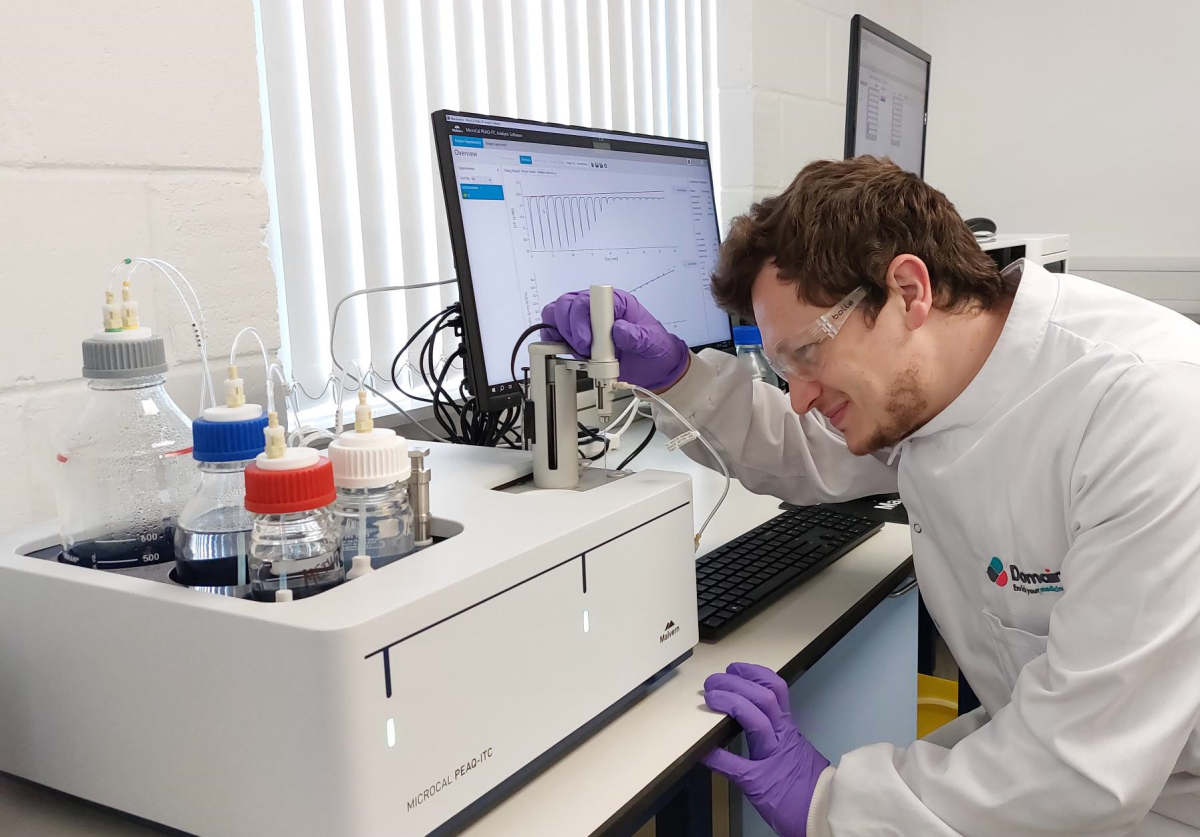- About
-
Solutions
-
Services
- Biosciences
- Chemistry
- Integrated Drug Discovery
- Computer Aided Drug Design
- Hit Identification
- Target Classes and Modalities
- Therapeutic Areas
-
A-Z
- A
- B
- C
- D
- E
- F
- G
- H
- I
- K
- L
- M
- N
- O
- P
- R
- S
- T
- V
- X
-
Services
- Library
- News & Events
- Careers
Isothermal Titration Calorimetry (ITC)
Label-free biophysical analysis of biomolecular interactions
Isothermal Titration Calorimetry (ITC) is a biophysical technique which directly measures the heat released or absorbed during molecular binding events in a label-free environment. It is typically used to study the binding of small molecules to larger macromolecules such as proteins or DNA.
During ITC, the small molecule is titrated into the larger macromolecule and if binding occurs, heat is given off (or absorbed) with each injection, until the protein is saturated. The dissociation constant (Kd), molar free energy change (ΔG), observed molar enthalpy change (ΔHobs), observed molar entropy change (ΔSobs) and the stoichiometry (n) of the binding interaction can be determined, providing a complete thermodynamic profile. This information can be used to differentiate between binding events that are driven by enthalpy or entropy.
Advantages of Isothermal Titration Calorimetry
- Complete thermodynamic profiling in a single experiment
- No labelling or immobilization required
- Non-destructive technique
- Solution-based technique
- Experiments can be performed using a broad range of solvents and buffers
- Rapid results
- Suitable for the assessment of a wide range of binding affinities and molecules with a wide range of molecular weights
Domainex has a highly experienced team of biophysicists and has invested in a Malvern Panalytical PEAQ-ITC instrument with MicroCal technology. The PEAQ-ITC is a highly sensitive instrument which requires only low sample volumes to determine affinity, stoichiometry and thermodynamic parameters for molecular interactions.
Please contact us if you would like to find out more about our ITC services or any of our other biophysical techniques.

Start your next project with Domainex
Contact one of our experts today